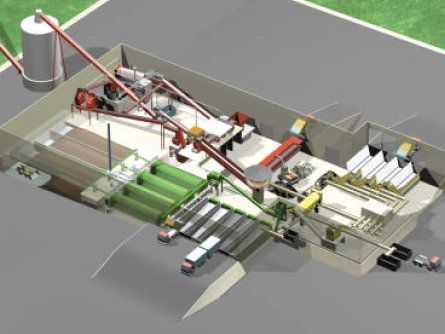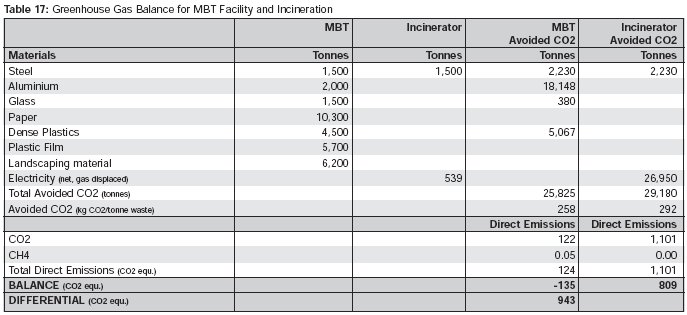|
Click here to place your Online Objection to the proposed incinerator
The Alternative to Incineration is MBT
Say NO to Landfill, and NO to Incineration.
There is a better alternative which:
- Emits less CO2
- Increases Recycling Rates
- and still enables Devon to avoid Landfill Fines under the EU Landfill Directive.
It is MBT (Mechanical Biological Treatment) in association with Anaerobic Digestion:

The Mechanical Part:
An MBT plant will process the residual waste with various mechanical techniques to break up and separate into 3 streams. 1 - Metals, glass and plastics can be recovered increasing recycling rate; 2 - biological/organic material for further processing in an Anaerobic Digester, and 3 - stabilised landfill.
The Biological Part:
The organic fraction is digested within a sealed tank with outputs of biogas which can produce electricity to run the plant and supply the national grid, and a soil improvement material which will allow Devon to meet its biodegradable municipal waste (BMW) allowance under the EU Landfill Directive.
The capacity of MBT facilities ranges from very small plants treating 10,000 tonnes/year or less, to large scale integrated facilities with capacities of over 200,000 tonnes/year. Capital costs have been estimated at around £8 million for a 50,000 tonnes/year plant. The number of MBT plants in the UK is increasing, with up to 15 local authorities likely to be employing the technology by 2010. On mainland Europe there are 80 MBT plants in operation in Germany, Austria, Spain and Italy.
MBT is more climate friendly than Incineration:

The table above shows the net balance of greenhouse gas emissions for the MBT facility and an incinerator. They show the situation where the avoided electricity source is gas. The result is that for each tonne treated in the MBT facility, savings of the order 940kg per tonne CO2 equivalent can be realised.
Thus for a 60,000 tonne incinerator the total CO2 emissions from the incinerator will be 48,000 tonnes.
But an MBT will actually reduce CO2 emissions by 8,000 tonnes.
The differential is 56,000 tonnes of CO2. That is the climate cost of an incinerator.
A Sustainable Waste Strategy
which includes all elements of the waste cycle:
We believe that the following integrated strategy is what we should be following instead of incinerating our waste.
1: Waste Minimisation
We should focus on minimising waste as a first priority. Despite much talk about this issue, it is just not happening. Indeed DCC are planning for an INCREASE in waste arisings of 50% over the next 30 years. Devon should be looking at reductions in waste of about 30% over the next 30 years. Bearing in mind that waste arisings have been reducing by 1% a year recently, this is not unrealistic.
2: High recycling rates
We should be recycling more waste. Devonís target is actually quite good. (40% now, increasing to 65% by 2025). But it could be better. I think we should be able to get this up to 70% by 2025, and possibly 80% by 2035.
Note that the combination of the above two realistic changes to waste policy reduces the amount of residual waste in Devon by 2035 from 200,000 tonnes to 60,000 tonnes per annum. This would be suitable for 3 MBT plants; one in Exeter, one in South Devon, and another in North Devon.
3: Residual Waste Treatment
The Best Practicable Environmental Option for the residual waste is Mechanical Biological Treatment in conjunction with Anaerobic Digestion producing Biogas, Digestate and a small amount to Landfill. (i.e. no Incineration and no Refuse Derived Fuel)
4: Long term
Beyond 2050 we should be thinking of Zero Waste.
Click here to place your Online Objection to the proposed incinerator
|



